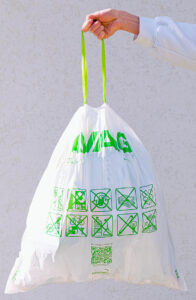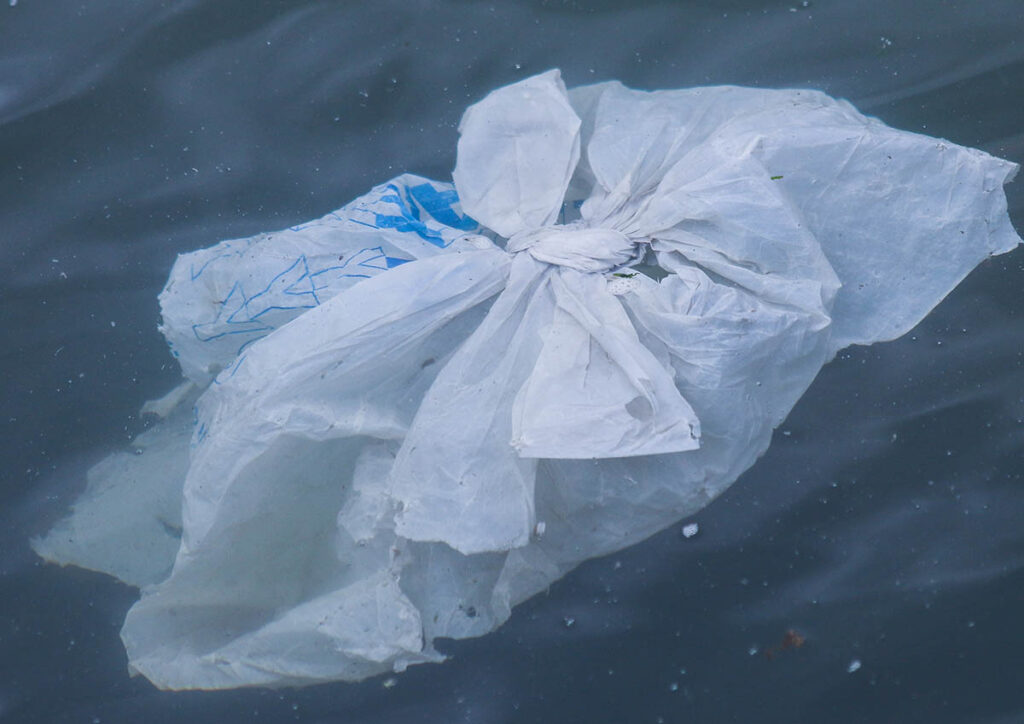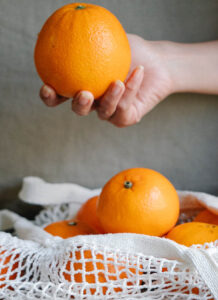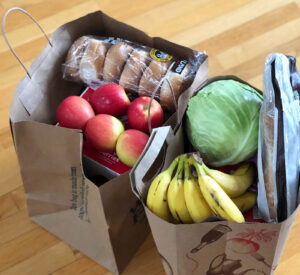It must be said, plastic grocery bags are incredibly convenient. They are lightweight, sturdy, and can instantaneously transform from a tiny, folded packet to a voluminous container ready to help shoppers gather their goods and carry them safely home. Made of inexpensive, high-density polyethylene (HDPE), they wait at the end of every grocery store check-out aisle ready to offer their services.
Before these ubiquitous bags, shoppers dropped their goods into flimsy brown paper bags and were left with fragile hopes of making it all the way home.
Plastic bags are so universal it is hard to believe they became a shopping mainstay as recently as the 1980s when they were introduced by Safeway and Kroger grocery chains. From the grocery store, the bags were quickly adopted by the fast-food industry, department stores, and an endless number of retailers where customers were supplied these handy carryalls for their merchandise.
a shopping mainstay as recently as the 1980s when they were introduced by Safeway and Kroger grocery chains. From the grocery store, the bags were quickly adopted by the fast-food industry, department stores, and an endless number of retailers where customers were supplied these handy carryalls for their merchandise.
The international non-profit organization, Plastic Ocean International, estimates that over 500 billion single-purpose plastic bags are created worldwide yearly. Only a small portion of these bags are disposed of properly, sending the rest into the natural environment where they may linger for centuries.
While petroleum is used in the production of these bags, it must be acknowledged that their initial carbon footprint is smaller than most alternatives. It may seem counter-intuitive, but multi-use cotton or heavy-duty paper bags are less friendly to the environment. At least when accounting for the upfront resources required for their creation.
The devastation plastic bags have on the environment is from the fact they are rarely used more than twice and are often disposed of improperly. HDPE-made bags can be recycled but require consumers to seek specific recycling bins and facilities for the process.
Instead, the plastic bags that are deposited in landfills remain there for an estimated 1,000 years. But they do not decompose, and they disintegrate into microplastics that continue to threaten the ecosystem. Unfortunately, of the nearly 100 billion plastic bags Americans use each year, most are lost to the environment, which devastates natural habitats and wildlife.

The ramification of worldwide proliferation where recycling and waste collection are less available to consumers and the environmental degradation caused by plastic single-use bags is also devastating for human health and welfare.
To counter the perils of plastic bags, there has been a cultural shift for consumers to purchase and carry their own reusable shopping bags. Some choices are better than others. Bags made from cotton are often more robust, and stylish, and can be used for more than just transporting weekly groceries. Their initial creation, however, carries a greater environmental cost. This expense can be offset by using the bags several hundred times. Because of their adaptability, useful lifespan, and the unlikelihood they will be discarded into landfills or oceans, this number is not unattainable.
Paper bags are another alternative. Initially, it does not seem paper would carry the environmental cost of cotton, but paper also requires farming and harvesting the base material. Like cotton, it takes vast amounts of water and fertilizer. While paper is easily recycled, because of the micro-structure of paper, there is a limit to the number of times it can be reused. Paper can, however, be composted or repurposed. The most critical drawback of a paper bag is that it does not hold up well.

With growing awareness of the problem, many governments are taking steps to ease further proliferation. The first country to ban plastic bags was Bangladesh in 2002. Kenya, a world-renown sanctuary for African wildlife, ban single-use bags in 2017, fortifying their laws with stiff penalties. The UK, no longer bound to the EU and its political chains to the petroleum industry, has recently announced plans to ban an array of single-use plastics beginning in late 2023.
Lotus Sustainables Eco-Friendly Reusable Produce Bags—These non-plastic vegetable bags use eco-friendly organic cotton mesh. They are washable and, with double-stitched seams, ready to hold the heaviest fruit, be it your favorite melon or pineapple. Lotus Sustainables offers bags in three different sizes as well.
The reusable bags from Naturally Sensible may not be created from entirely eco-friendly materials, but they can replace single-use bag. Lightweight, these washable bags are offered in a large 12 x 14-inch size.